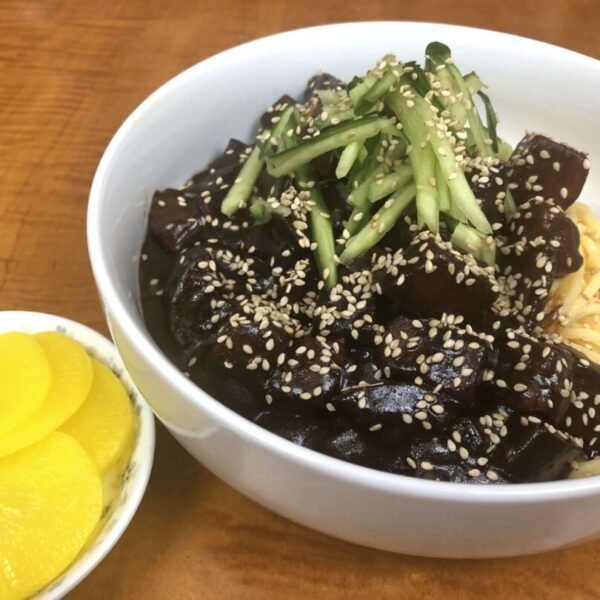Jjajangmyeon translates to “sautéed black bean paste + noodles.” “Jjajang” means sautéed black bean paste, and “Myeon” means noodles. This dish is a popular adaptation of the Chinese dish “Zhajiangmian.” Although they spell it differently, the pronunciation remains quite similar.
This Korean-Chinese meal is both sweet and savory, requiring the frying or sautéing of all the vegetables and the black bean paste (Chunjang). This process is crucial to achieve the right aroma and taste. Originally, the raw Chunjang is very bitter, and the only way to balance out the flavor is by releasing the oil through frying.

While the recipe is inherently sweet and savory, I personally prefer mine on the sweeter side. Adding sugar or honey helps to balance out the flavors and achieve the desired sweetness. If you have watched my cooking videos, you would know that sugar is my best friend in the kitchen. It enhances the flavor of everything.
Jjajangbap (장백)
Jjajang means sautéed black bean paste, and “Bap” means rice. You read it correctly you can enjoy your Jjajang with rice, which is called Jjajangbap (“sautéed black bean paste + rice”). The taste is exactly the same, except that it is paired with rice. I usually opt for this version when I still feel hungry after eating my Jjajangmyeon or when I run out of noodles but have leftover Jjajang sauce. It’s the perfect way to finish up any leftover food.
Try this recipe and let me know what you think!

Give it a try and let me know how you like it! I’d love to hear your thoughts and any variations you come up with. Happy cooking!





Leave a Reply